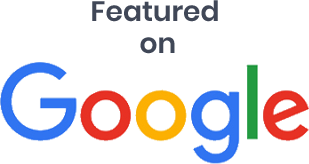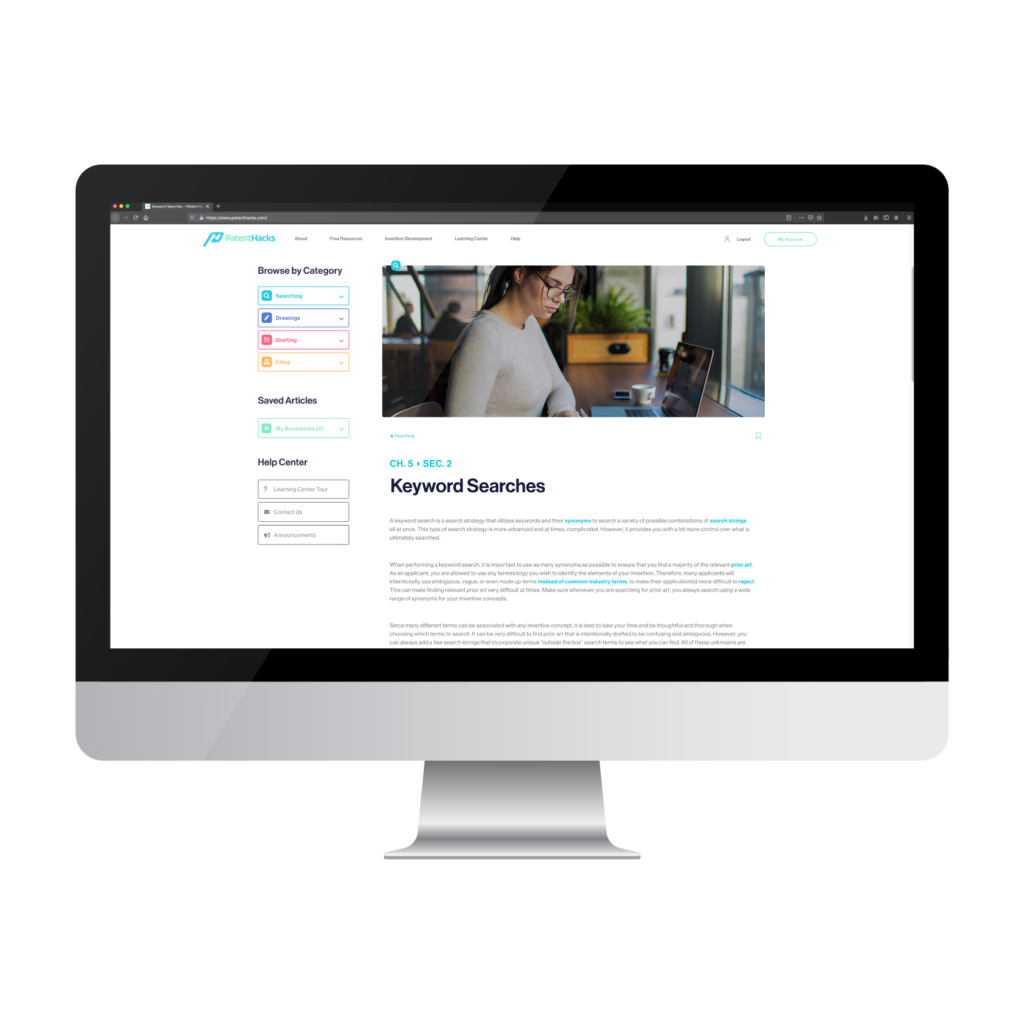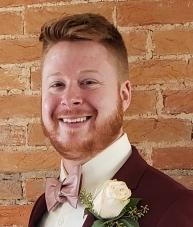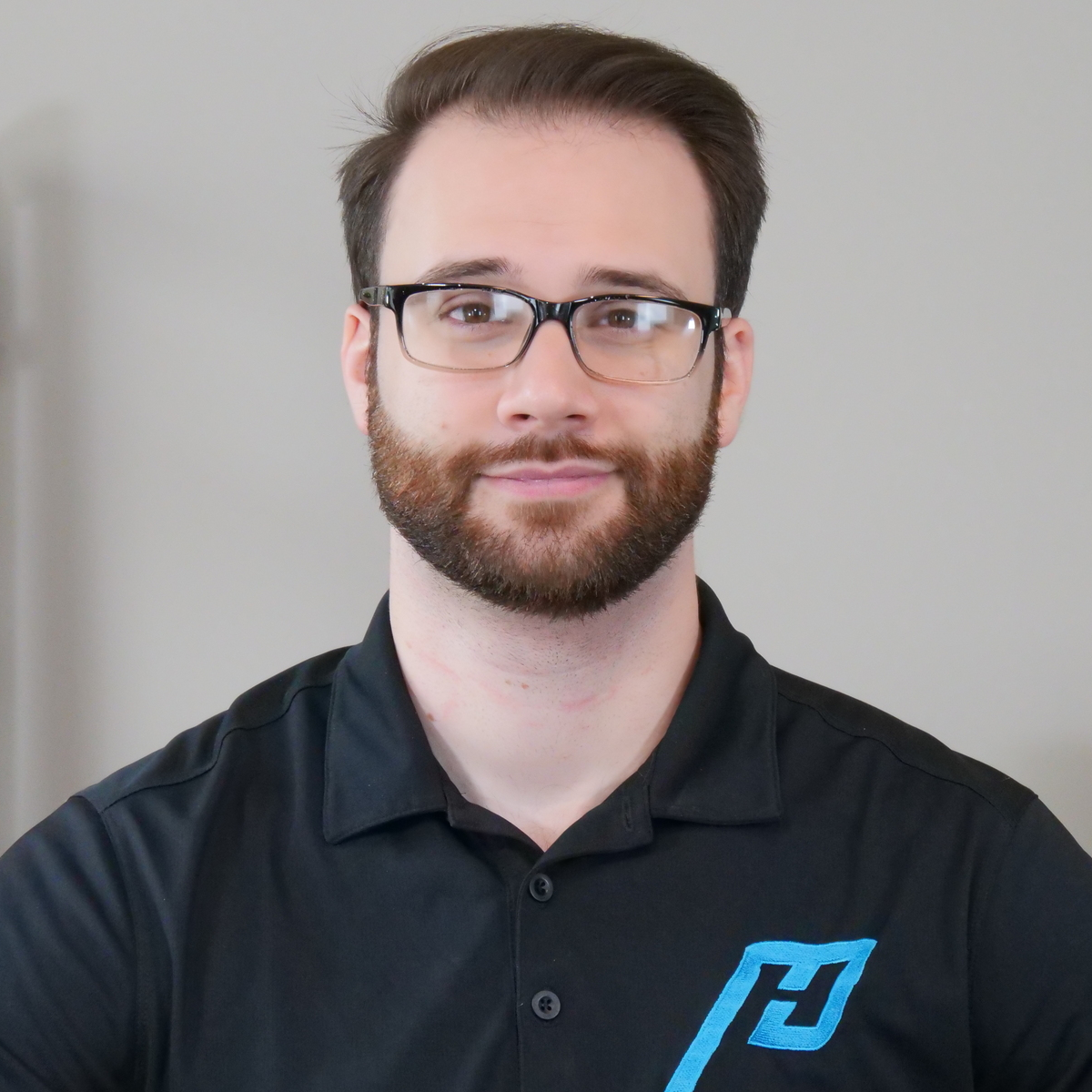Services
Patent Hacks®: NEXT GENERATION IP Services
The Future Of IP Is Here
Welcome to Patent Hacks®, where cutting-edge technology meets intellectual property expertise. Our services transform the way inventors, businesses, and law firms navigate the complex world of intellectual property.
- Accelerate Patent Searches: Discover relevant patents and prior art with unprecedented accuracy.
- Enhance Patent Quality: Get AI-assisted drafting services to ensure your patent application stands out and covers all essential aspects.
- Optimize the Trademark Process: Our simple and user friendly trademark app streamlines the filing process.
- Save Time & Reduce Costs: Automate time-consuming tasks and reduce the costs of manual patent prep and analysis.
Whether you’re a startup looking to secure your first patent, a corporation expanding your IP portfolio, or a law firm seeking efficient solutions for you & your clients, Patent Hacks® provides the services to stay ahead of the curve.
Patent Services
Our done-for-you patent drafting service combines the power of advanced AI with expert patent knowledge to create high-quality patent applications within 48 hours. Simply provide your invention details, and our team of patent experts will draft a comprehensive, accurate patent application, optimizing claims, language, and structure. The result is a professional patent application ready for submission, saving you time and money. Whether you’re a startup, a large enterprise, or a law firm, Patent Hacks® provides the services you need to stay ahead in the competitive world of intellectual property. Start leveraging the future of innovation today!
$499.99
per application
per application
SPECIAL LAUNCH PRICING
SPECIAL LAUNCH PRICING
STEP 1
Your Invention
Provide a detailed description of your invention, your patent drawings (preferably), and any prior art. The more details the better!
STEP 2
The AI Magic
Receive your AI assisted patent application! Our tools build a complete patent application and one of our IP experts reviews it.
STEP 3
Attorney/DIY
Now it's time to partner with an attorney to file your application. You're bringing a complete application, so this should be quick & affordable.
This document should be considered a first draft and you should thoroughly review it before submitting it to the USPTO.
Trademark Services
Get your trademark application filed in just 10 minutes! Our intuitive platform guides you through each step of the process, collecting all the details needed for a successful application. After submission, a trademark attorney will review and file your application, handling everything on your behalf for a smooth, seamless experience. Post-filing you will hear directly from the trademark attorney for any additional correspondence. Our entire process is designed to be quick and hassle-free. Get started protecting your brand today!
$399.99
+ USPTO Fees ($250 per class)
+ USPTO Fees ($250 per class)
STEP 1
AI Powered Search
Enter your brand name and our AI powered search tool will let you know if it's being used in any current markets.
STEP 2
Application Info
Provide all of the necessary details for your trademark application. This includes your specimen, goods, services, classes, etc.
STEP 3
Trademark Filed
Congrats! Your trademark is being reviewed and filed by a registered trademark attorney.








Prior Art Services
Prior art searching is a critical step in the patent process. A thorough prior art search can uncover potential obstacles to patentability and help refine your application. Conducting a proper search early on not only strengthens your IP strategy but also saves time and money by reducing the risk of application rejection or costly legal disputes down the line.
Our prior art search service is conducted by former USPTO patent examiners and expert researchers trained to perform government quality searches. Using advanced tools and industry-leading techniques, we thoroughly investigate existing patents and prior art to ensure your invention is unique and patentable. With the expertise of seasoned professionals, you can trust that our searches deliver the accuracy and depth needed for a strong intellectual property strategy.
$550.00
per search
per application
SPECIAL LAUNCH PRICING
STARTING COST
STEP 1
Search Selection
Select the type of search and jurisdictions you want to search within. The more options you select, the more comprehensive your search will be.
STEP 2
Your Invention
Provide all the most relevant details about your invention. What makes it unique? Describe its characteristics and functions.
STEP 3
Search Results
Receive your complete prior art search results! Our team will compile a comprehensive list of results ready for use in strategy, development, and patent applications.
OUR TEAM
We Want To Make A Difference
The Patent Hacks® Platform is designed by patent professionals with a collective 50+ years of experience in the patent industry. We experienced many of the same issues you are dealing with, expensive legal fees, complex IP concepts, and time-consuming research. We built the Patent Hacks® Platform to solve all of those problems and more.








EVERYTHING YOU NEED
Learning Center Categories
Ch. 1 Importance
Ch. 2 Understanding A Patent Examiner’s Approach
Ch. 3 Preparations
Ch. 4 What to Look For
Ch. 5 Search Strategies
Ch. 6 Databases
Ch. 1 Importance
Ch. 2 Professional Options (Finding Design Help)
Ch. 3 Prototyping
Ch. 4 USPTO Drawing Requirements
Ch. 5 Common Practices
Ch. 6 Drawing Options
Ch. 7 Drawing Views
Ch. 1 Importance
Ch. 2 Make Sure Your Invention is Patentable
Ch. 3 Anatomy of a Patent
Ch. 4 Preparations and Things to Consider
Ch. 5 Using your Prior Art Search Results
Ch. 6 Details, Details, Details!
Ch. 7 Terminology and Non-limiting Language and Disclosures
Ch. 8 The Art of Claiming
Ch. 9 Claiming Strategies
Ch. 10 Building Your Specification
Ch. 11 The Perfect Abstract
Ch. 12 Choosing the Right Title
Ch. 1 Importance
Ch. 2 Filing Options
Ch. 3 Utility Patent Application Requirements (USPTO)
Ch. 4 Forms
Ch. 5 Formatting Your Application
Ch. 6 Filing Process

OUR PROCESS
How It Works
STEP 1
Subscribe
Signup to gain access to the Patent Hacks™ Learning Center.
STEP 2
Perform a Prior Art Search
Learn how to perform a professional prior art search.
STEP 3
Prepare Patent Drawings
Learn how to prototype and prepare high-quality patent drawings.
STEP 6
Succeed
Build your business and chase your dreams!
STEP 5
File Your Patent Application
Learn how to efficiently and effectively file a patent application.
STEP 4
Draft Your Patent Application
Learn how to prepare a professional-grade patent application.
WE STAND OUT
Compare
How Patent Hacks compares to other patent professionals
- Patent Attorneys
- Inventhelp
- Legalzoom
| Patent Professional Price |
 | Patent Attorneys | Inventhelp | Legalzoom |
Patent Professional Price |
$24999* | $10,000+ | $11,000+ | $3,500+ |
| Affordable | -- | -- | -- | |
| You get to keep full rights and equity of your invention | Most of the time | -- | ||
| Full Privacy | -- | -- | -- | |
| Patent Experts | ||||
| Designed by former USPTO patent examiners | -- | -- | -- | |
| Get started instantly | -- | -- | -- | |
| Trained to analyze patent applications | ||||
| Accessible 24/7 | -- | -- | -- | |
| Repeatable training processes | -- | -- | -- |
*A subscription to the Patent Hacks™ Learning Center costs $249.99 for the first year and $19.99 per month thereafter.
We Go Above & Beyond
Everything you need in one place
Easy to Use
Patent-Specific Definitions
Easy to Learn
Up to Date
Optimization
Innovation
HEAR FROM OUR USERS
Testimonials



THE MORE YOU KNOW
Common Patent Questions
If you’ve had that eureka moment, you’ll no doubt want to make sure that you’re protected by patent law before you start working on your idea.
However, it is worth discussing if you can even patent an idea.
The short answer to that question is no. If you are attempting to patent something that is just an idea, then it won’t happen. However, it is possible to patent an idea once it has become an invention.
So, how do you protect your idea?
Let’s explore these concepts and discuss how you should protect yourself when you’re creating something new and exciting.
Before finding out how to get a patent on an idea, you must understand the difference between an idea and an invention.
All inventions start with an idea. However, it is important to point out that not every idea is an invention, and that not every idea could be turned into one.
For an invention to be patented it needs to be patentable subject matter, useful, nonobvious, and original at the very least. It is not enough to say that you have come up with an idea for an invention, you would need to be able to show that it actually works.
For example, you could come up with an idea for a flying car, but unless you can demonstrate through your plans that you know how you would make the car fly, then your patent would not be granted.
It is essential that you know all about patents and how they work before you apply for one. It will save you time and money, and ultimately ensure that your invention is properly protected.For more on this please visit our Learning Center.
A patent allows you to register ownership of your invention. It is a property right granted by the federal government that allows you to prevent other people from making, altering, or selling your invention while your patent is active.
If you have a patent in place, it means that you can take legal action against anyone that steals or attempts to make money using your inventive concept(s).
In the United States, patents are looked after by the United States Patent and Trademark Office (USPTO).
However, the USPTO will only grant patents that meet a specific set of criteria.
Even if you have a useful and unique invention that is either a machine, process, manufactured items, or compositions of matter, you cannot get a patent if it is:
- A law of nature
- A natural phenomenon
- An abstract idea
As long as your idea does not fall into one of these three areas, then it should be capable of being patented.
The criteria for each type of patent will differ, as will the length of time that it is active. In addition to differing timescales, there are also different maintenance fees associated with each type of patent.
From the date of the application, the utility patent lasts for a total of 20 years. To protect your invention for the full 20 years, you will need to pay maintenance fees throughout the life of the patent. This could be quite expensive; however, it is worthwhile for the protection it provides.
After the 20 years are up, it might be possible to extend the protection, however, this will depend on the circumstances. Extending a patent beyond 20 years is quite rare.
Design patents only last for 14 years from the date that the application is accepted. Unlike the utility patent, there are no maintenance fees attached to design patents.
While a design patent may seem like a cost-effective option, you should consider the fact that a design patent does not protect the function of the invention, just the aesthetics.
For plant patents, there is 20 years of protection, and there are no maintenance fees.
Once you have your invention patented, you might worry about manufacturers from other countries making copies of your invention. With the potential for lower-cost manufacturing, there would be a risk that these copies could really damage your sales.
Where do you stand with your invention’s patent internationally? Is there an international patent law?
Regrettably, United States patents will not protect your invention outside of the U.S. Although it could be argued that there are clear grounds for international patent laws, unfortunately, such a thing doesn’t exist.
Patent laws will differ between countries. There might be some universal aspects that apply to many countries, but not all of the points in United States patent law are applicable everywhere.
Researching the specific laws of the countries that you want to extend your patent to is essential.
There is, however, the Patent Cooperation Treaty . This makes the process of patenting your invention overseas a bit more straightforward.
The Patent Cooperation Treaty allows you to file patents across many different countries all at once through an international patent application.
If you are filing a patent in another country, you should keep in mind that you will need to pay maintenance fees for that country. This will vary, and you might have different tax obligations within that country.
With all of the complexity surrounding international payments and taxes, you should seek the assistance of an accountant.
While you cannot officially file a patent for a name, you can register a trademark for one.
Businesses often seek a trademark for the name of their company. A trademark can be filed through the United States Patent and Trademark Office and it protects your company name from being used without your consent.
However, this protection only applies for when someone is referencing your company, especially in situations where your company name contains common words. This is an important distinction because many companies use common words in their trademark, which means some overlap is possible.
It is difficult to patent an idea. You need to be able to prove that your idea can function and that you know how to make it meet its intended purpose.
In addition to this, there will be many other requirements that your invention must meet before a patent can be granted. This makes the process of applying for a patent both long and tedious. Not only that, but you’ll need to get your head around some tricky legal concepts.
Patent Hacks:Learning Center is here to help. With a wide range of resources, we can provide you with the information that you need to ensure your patent application is a success.



